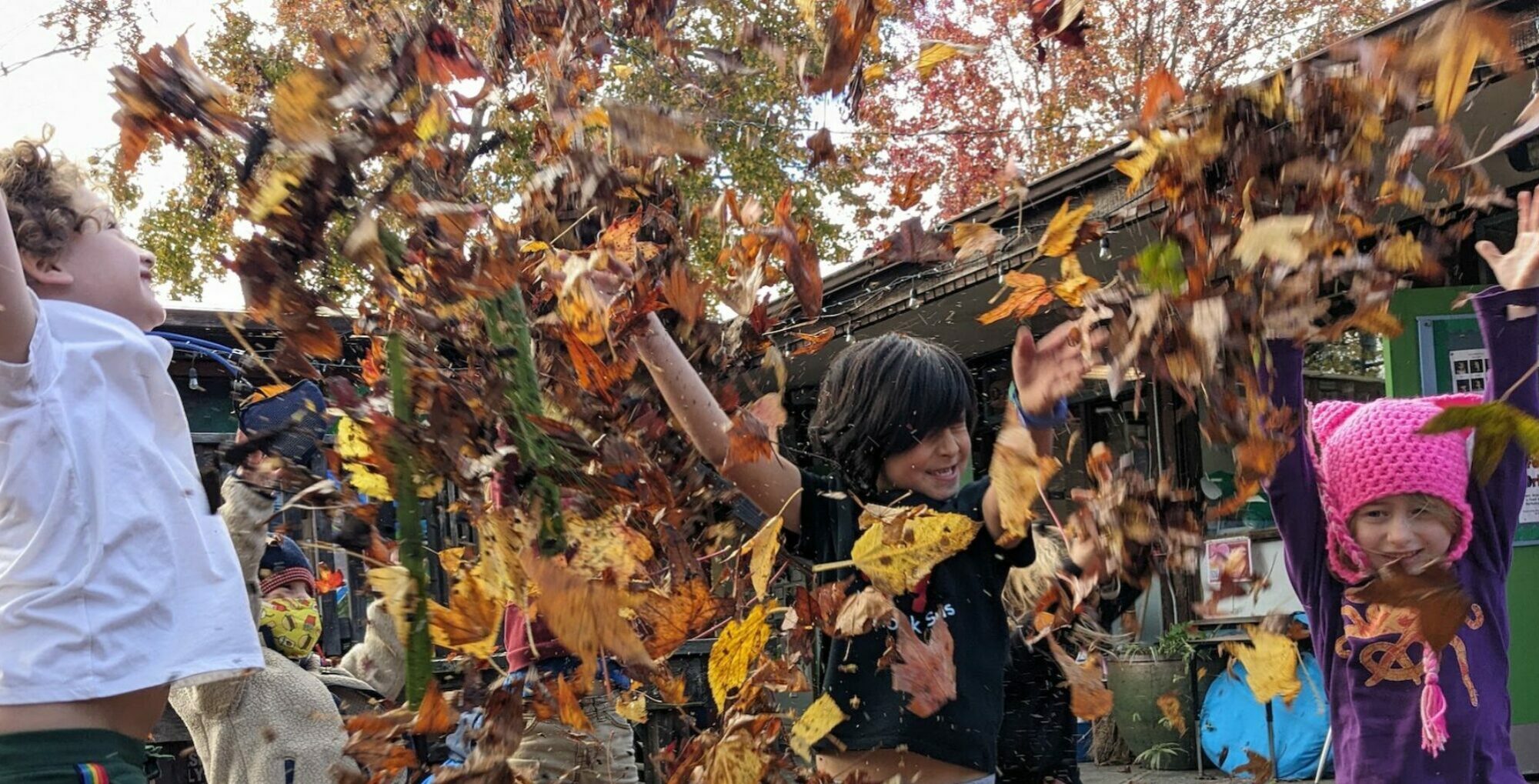Lower Group
Lower Middle Group
Middle Group
Upper Group
Drama and Movement
Music
Visual Art
Spanish
Lunch, Snack & Recess
Lower Middle Group students practice increased independence from their parents by taking more responsibility for their belongings and their school environment. Their school day is increased by 45 minutes, making it as long as the rest of the school. As they naturally move towards more complex social play, they practice working in pairs and small groups during academic activities as well. At the beginning of the year, the school day is broken into frequent, short activities to accommodate developmental needs. As attention spans increase during the year, activities are offered for longer lengths of time.
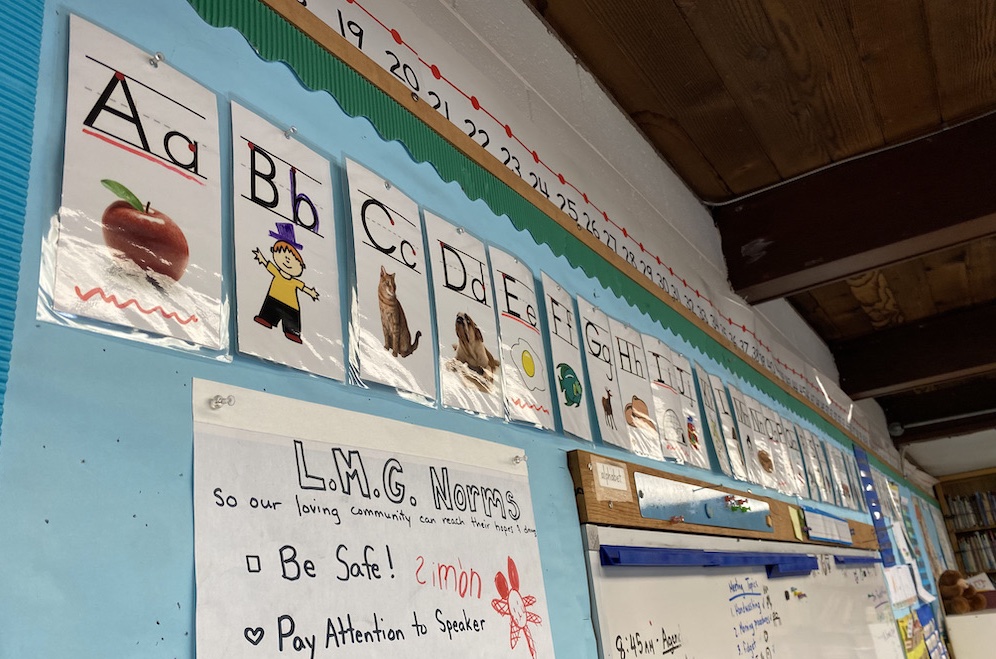
Language Arts
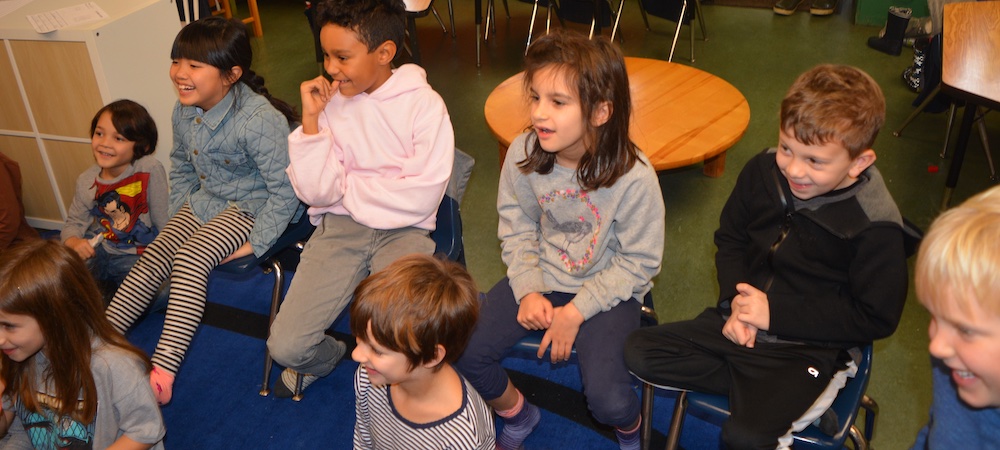
Children learn to read and write in many different ways. We use a wide array of activities and lessons in the Lower Middle Group to help students advance their understanding of language.
READING
The teacher reads aloud daily from a wealth of children’s books that have been collected over Walden’s 60+ year history. In these daily read-aloud, the teacher practices thinking-aloud, making explicit the type of thinking that good readers might do while they engage with text. Children are asked to notice connections, ask questions for content and clarity, make predictions, and summarize. Inflection and fluency are supported by these daily read-aloud sessions.
Children read pictures and words from books of their choice independently and with friends. We also have reading groups that allow children to read at their instructional reading levels, helping them to feel successful even at the very early stages of reading.
Phonics skills are taught through games, activities, and written exercises including word wall and making words.
WRITING
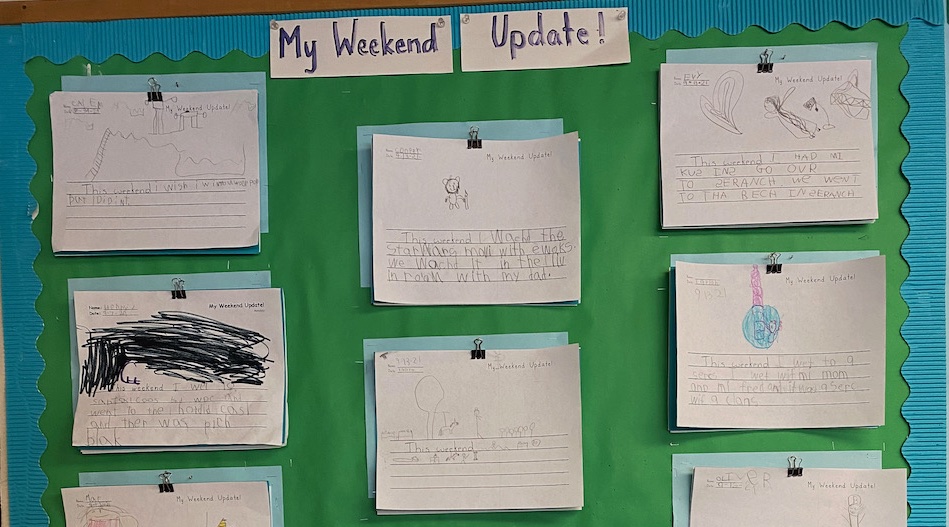
Lower Middle Group students practice writing skills as a group and individually. The teacher models writing in front of the class, asks for student input and editing help, and guides each child toward a greater understanding of the English language. The teacher writes lists and paragraphs on large chart paper with the help of the children using content from other subject areas.
Writing workshop lessons involve modeling and teaching writing skills followed by independent writing time. Students practice writing the sounds that they hear in the words they wish to write, which helps them develop a sense of spelling. Spelling patterns are taught as a part of the phonics program, but children do not memorize word lists in the Lower Middle Group. We add frequently used words to a word wall weekly and use it as a spelling resource and play games using its words. In LMG students study many types of writing: narrative, expository, persuasive, letter writing, and poetry. Students have the opportunity to share what they have written during the Author’s Chair.
Mathematics
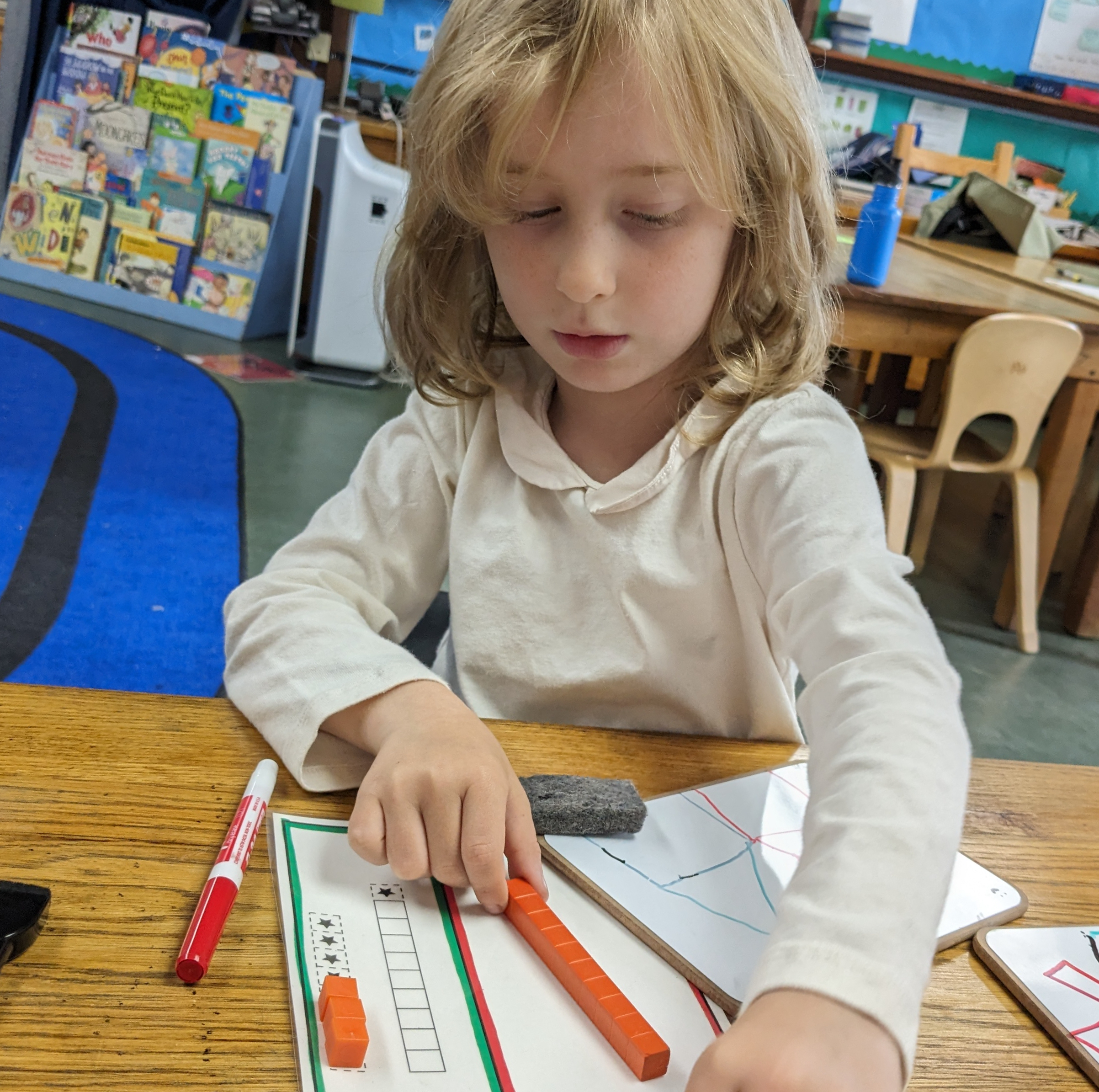
Math in the Lower Middle Group is a combination of exploration, games, activities, written practice, and conversations. Students learn new concepts with the use of math manipulatives and other items that they can touch and move around. They develop their own understanding of mathematics using their own experiences. Then they spend some time practicing the skills using simple games and activities. When they are ready, we move on to abstract expression through written numbers and symbols. Some concepts, like money and measuring, are taught in in-depth units and as part of science and social studies units. Others, like place value and time, are introduced in formal lessons and reinforced daily in our morning circle.
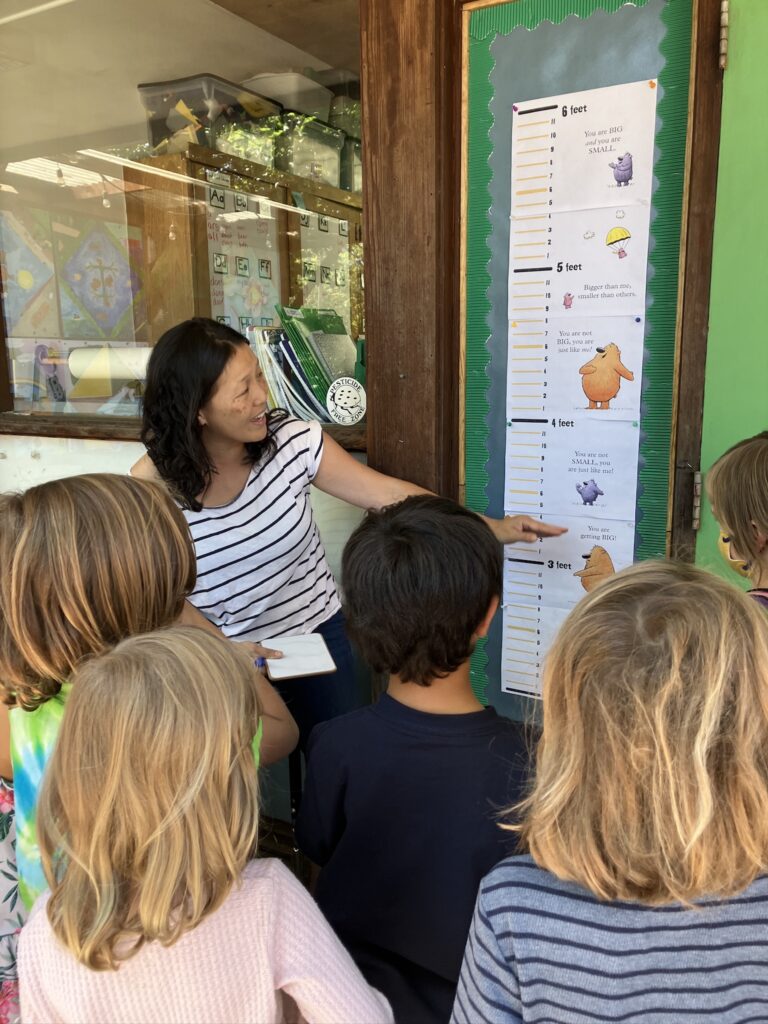
Math lessons come from a variety of hands-on curricula which use techniques that have been shown by educational research to teach children to understand math concepts, providing them with a deeper mathematical knowledge than curricula that stress formulas and rote memorization. The National Council for Teachers of Mathematics standards and the California State Standards are consulted in developing our curriculum.
Science
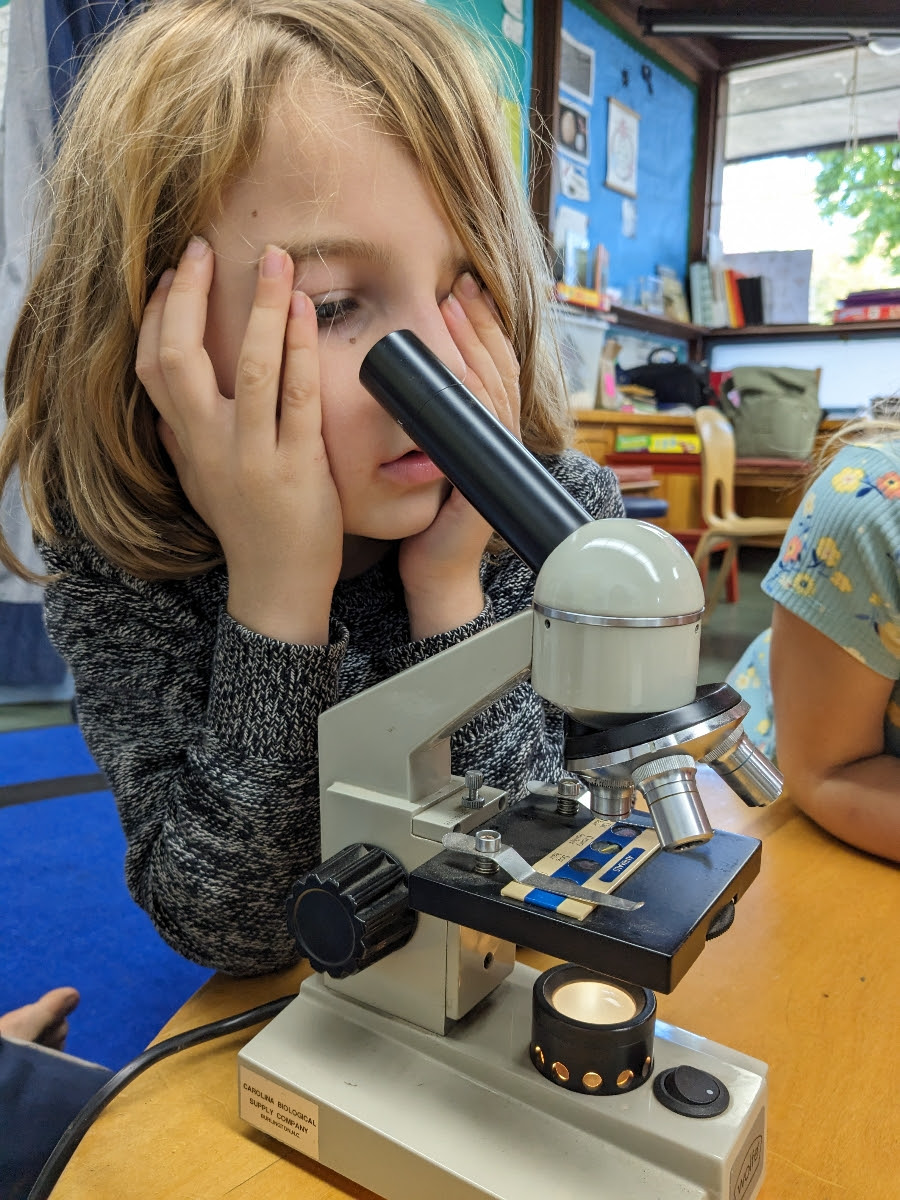
Science units at Walden are derived from the children’s requests. At the end of each school year, the Lower Group visits the Lower Middle Group teacher and lists what they want to study the following year. That list is then organized into thematic science and social studies units. Walden students always include some biology in their list of what they want to study. Some common topics are farm animals, reptiles and amphibians, butterflies, and ocean life. The Lower Middle Group also frequently studies space and plants. Within these units, these are the science skills we study every year: observation, classification, estimation, graphing, and measuring. Walden is a school rich with resources about these topics. Lessons come from a variety of sources: bound curricula, museum websites, online lessons, and students’ and teachers’ ideas. Science units always include math, writing, reading, and arts in addition to science. When possible, we go on a local field trip for each unit to add depth to our studies.
During Walden’s annual Science Week, the Lower Middle Group learns and practices the scientific method intensively. We learn scientific terms like “hypothesis” and “observations.” We explore properties of matter using fun, age-appropriate materials. Students also have a choice to do an experiment at home and bring in a display on Science Night to share with the Walden community.
Social Studies
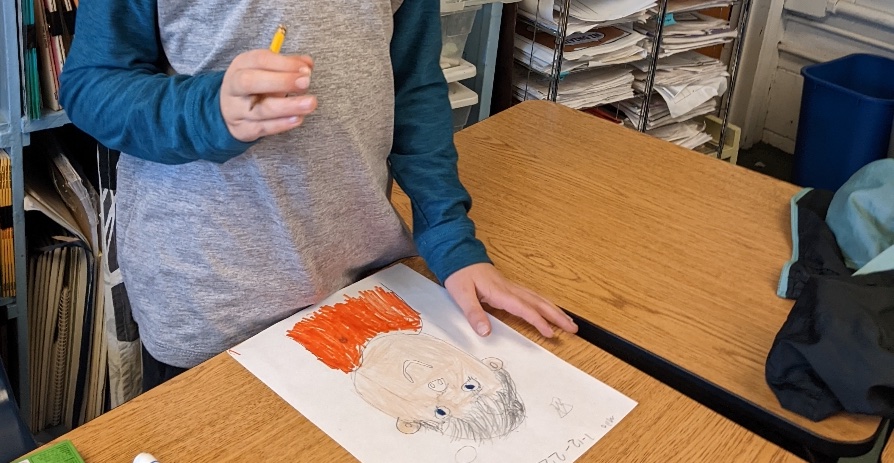
The main focus of social studies in the Lower Middle Group is on community building with a focus on developing the framework to help children participate in conversations around social justice. In the four parts: self/identity, community/diversity, justice, and action. We begin to build our own community by making rules together at the beginning of the school year and practicing resolving conflicts peacefully throughout the year. We learn frameworks to help think critically about differences and similarities, and to practice perspective taking, and to examine our our own viewpoints while we learn. We learn to respect all members of our community when we learn about different kinds of families. We extend out into the greater community of our country when we study the civil rights movement.
Social Emotional Learning
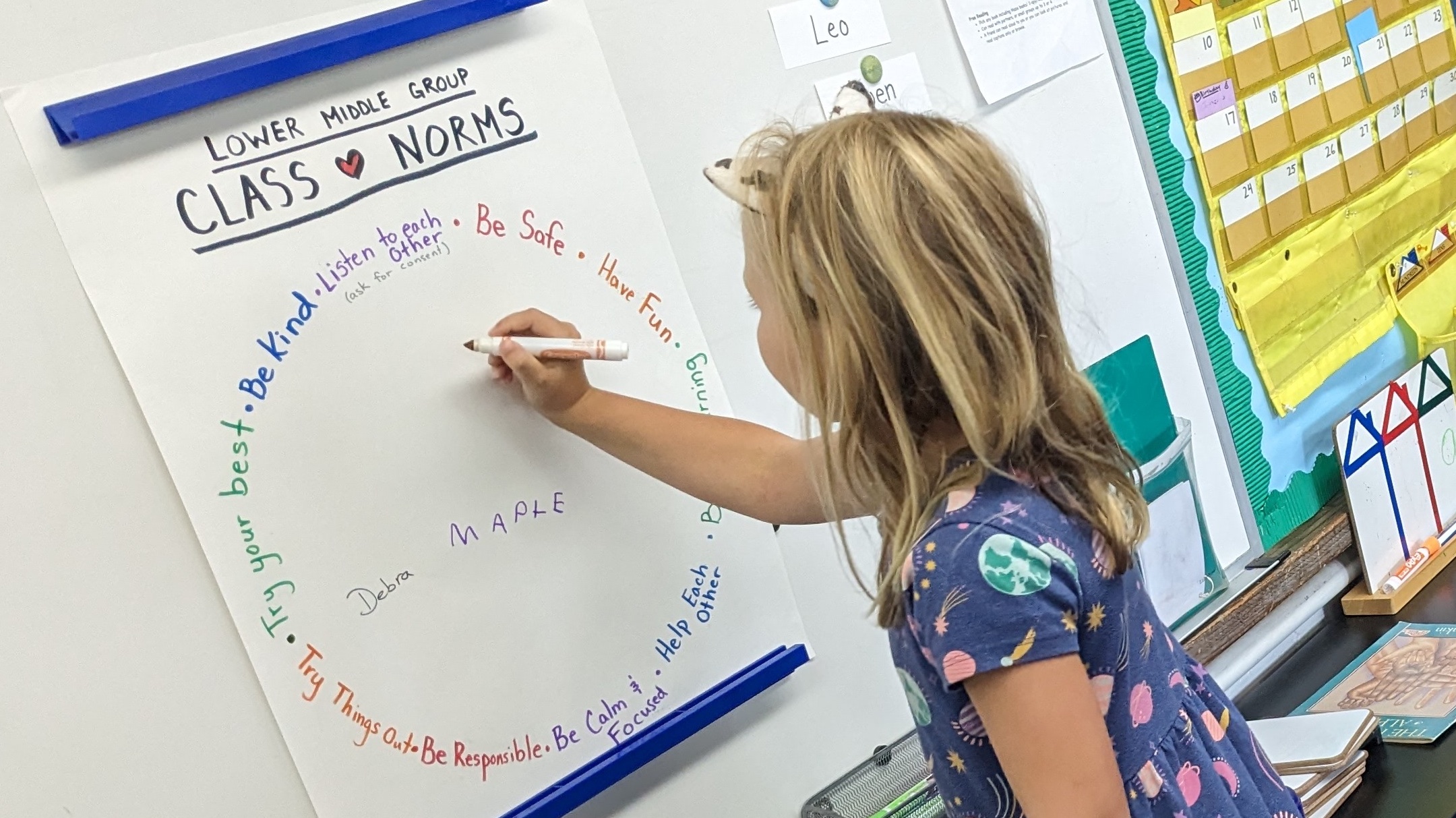
At Walden, students learn how to negotiate with one another to build a loving Community. -Debra Wong, LMG Teacher
The Lower Middle Group social-emotional curriculum is taught yearly, weekly, and daily. It is a mix of direct instruction, role playing, games, literature, empowered conversation, and practice.
At the beginning of the year, the class goes through the process of developing the class rules. Because the children are involved in their thoughtful creation, they feel ownership of the class rules. The Lower Middle Group has daily class meetings modeled from the Responsive Classroom curriculum. We sit in a circle, taking turns while addressing current issues that the whole class needs to discuss and/or resolve.
Our daily work with conflict resolution and respect is multifaceted and begins with circle time, modeled after the Responsive Classroom morning meeting. Children start each day with a greeting that makes everyone feel welcome and a part of the group. We play noncompetitive games to reinforce team building and group cohesion. During the school day, students work in assigned small groups to practice working with children with different learning and communication styles. When an issue arises in the school day between two or more students, a teacher helps facilitate the conflict resolution process. Children practice listening respectfully, taking turns, and collaborating to find a solution to the problem. As the school year progresses, some children become comfortable resolving small conflicts and can do it without a teacher’s help.
American Sign Language
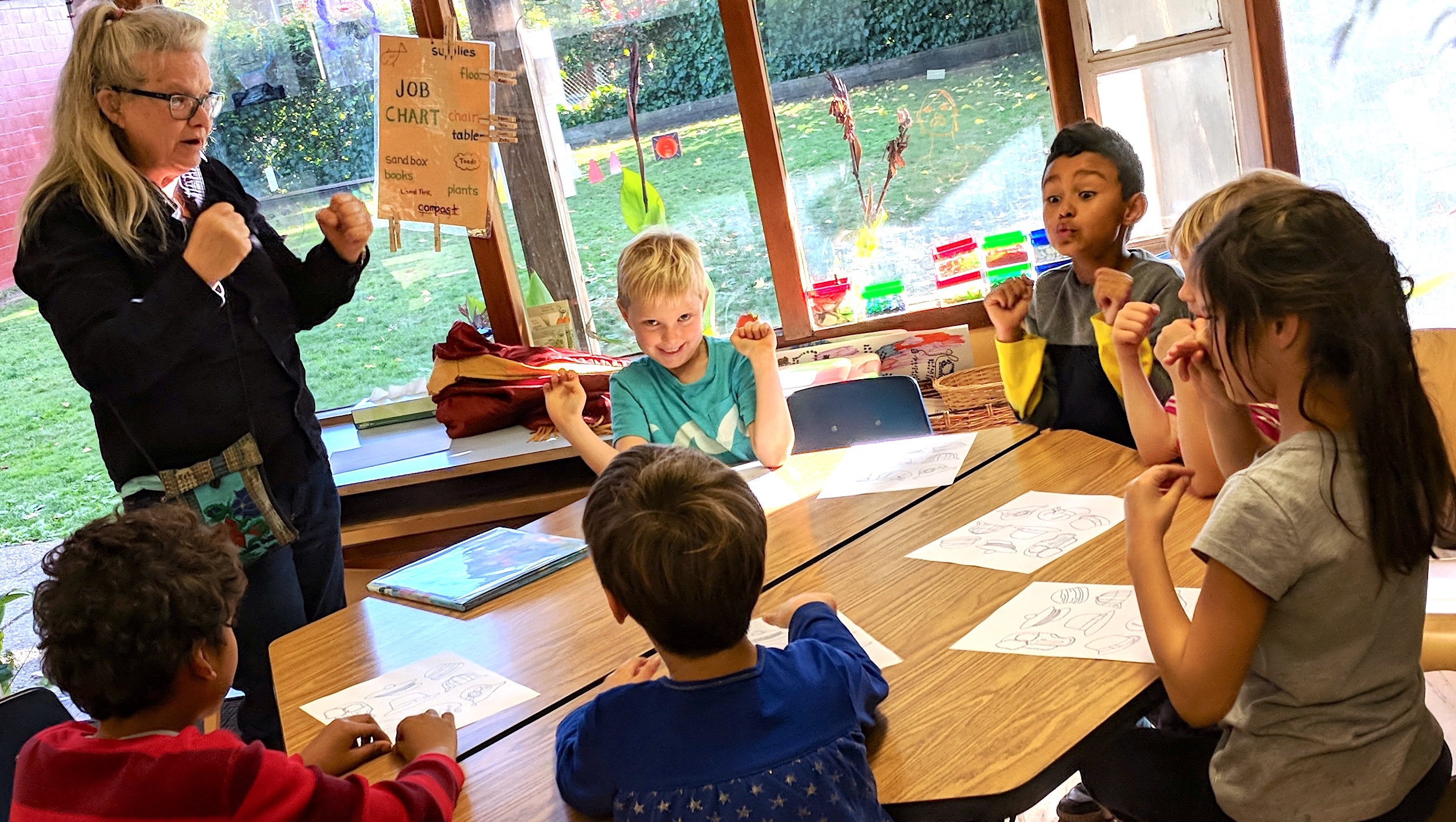
Sign language is a fun and physical way for young children to connect with language. Walden’s ASL program for the Lower and Lower Middle Groups helps expand vocabulary, improves expressive and receptive language, and teaches an appreciation for deaf culture and diversity. It can provide early inroads to writing – young children are often able to finger-spell before they can easily write the alphabet. The dramatic nature of signing engages the imagination and encourages expression, and the children enjoy using their signing skills to write and film their own sign-language “play” at the end of the year.
Spanish
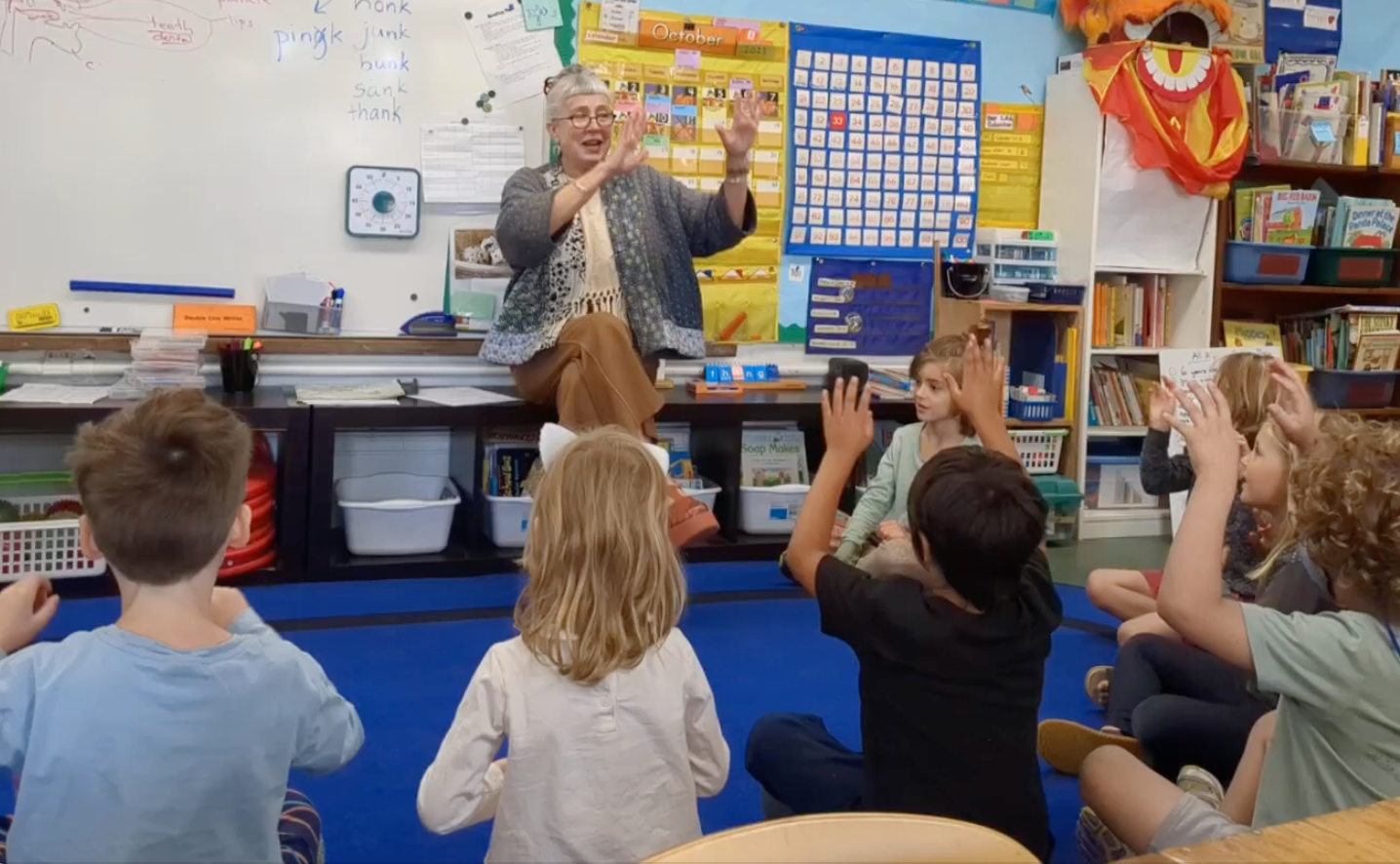
In Lower Middle Group we build upon all that we learned in Lower Group. We learn the letter sounds of the whole alphabet in Spanish. We learn the days of the week and work on calendar concepts such as yesterday, today and tomorrow. We continue counting in Spanish. We expand our vocabulary through thematic units including units on family/family members, transportation, animals, plants and the seasons. We play games and do word searches, and begin to explore the concept of the articles before the nouns in Spanish which are gendered, a big difference between Spanish and English and an important concept to learn in language acquisition. We do literature studies, including a unit on the books of Eric Carle. And, of course, we continue to sing and have FUN!
Throughout all of the grade levels there is an emphasis placed on the importance of learning another language to help us understand one another, to expand our horizons and to open doors to other ways of thinking and being. Learning another language expands our brains and hopefully instills some compassion and understanding of what it is to be from somewhere else.
Learn more about Spanish at Walden
Drama and Movement
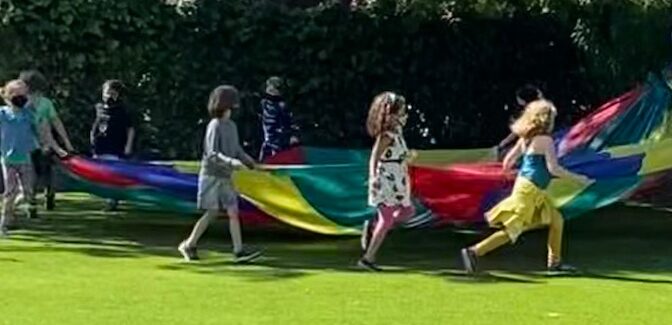
Teaching your wings to grow: The raucous, fun filled world of Drama and Movement at Walden continues to abound in the Lower Middle Group with fun, surprises, and developmentally appropriate theatrical endeavor. The free-form movement activities of the Lower Group are gently reinvented as more formal, more structured dances. The sing-alongs and drama games are refined into short scenes and mini-musical numbers. The children creatively respond to a variety of props from dancing scarves to rhythm sticks and small, soft balls to make up dances of their own whim or to follow guided instruction. Each child’s imagination is vitally important.
This age group loves dramatic play so it makes perfect sense that they would coauthor their end-of-year performance. The “script” is never actually on paper, instead it is an organic expression of a blueprint for fun that is etched into the children’s minds, bodies, and hearts. Children learn more about African dance, ballet, jazz, and hip hop. They focus on acting skills. Creating a character involves a series of steps that include memorization, enunciation, and improvisation. A basic goal is projection of the personality or character. The children are encouraged to be assertive as they find their way through the imaginary world of theatre. All of this results in a whirlwind, year-end guided performance for family and friends when each child is given an opportunity to shine.
Learn more about Drama at Walden
Music
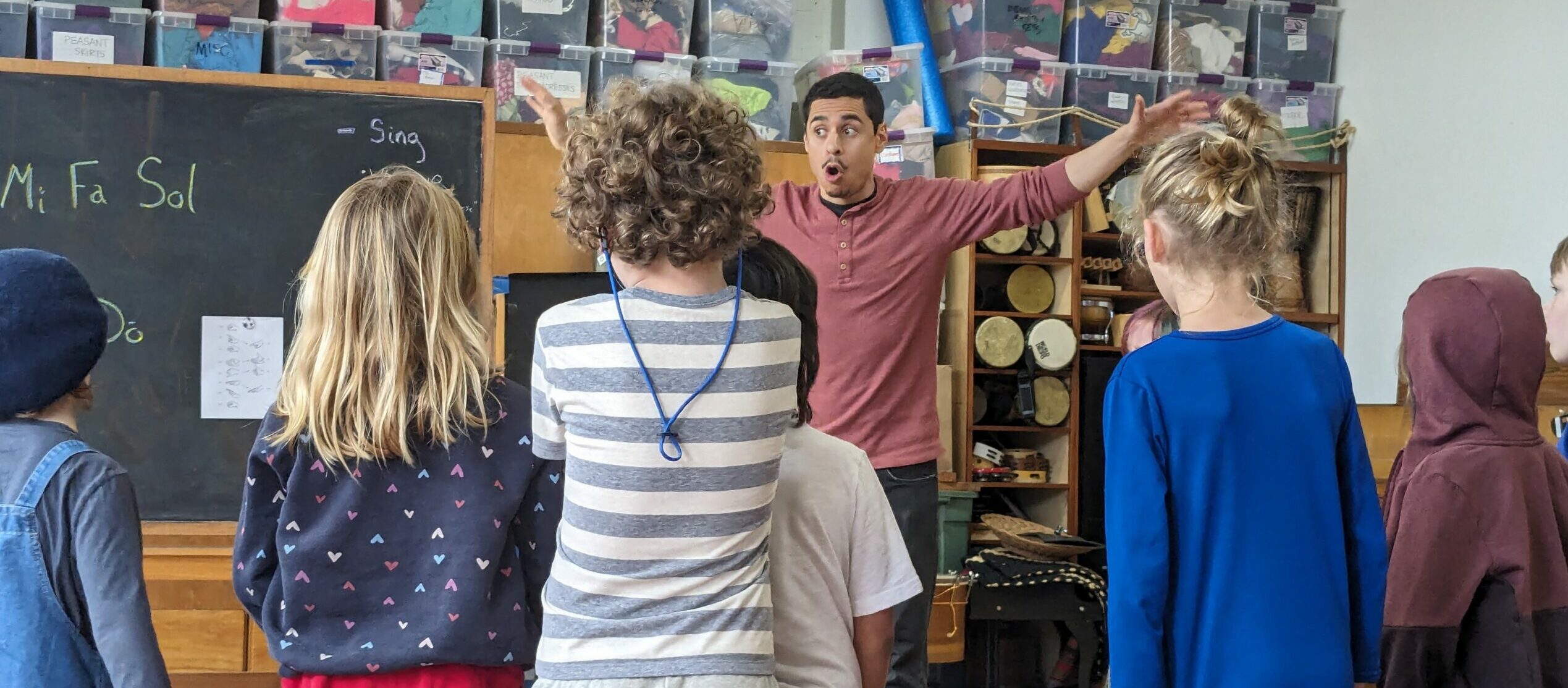
Lower Middle Group music builds on the experiences of the previous year, during which the children explored basic musical elements through speech, song, movement, dance, games, and instruments. This year they will continue building a repertoire of pieces, games, and activities, while also beginning to name basic musical elements such as beat, rhythm, melody, and phrase. Lower Middle Group music covers the following concepts:
- RHYTHM: hearing, identifying, and performing steady beats through patting, clapping, gesturing, walking, and playing on instruments; reading and recognizing basic note values (quarter notes, eighth notes, rests)
- MELODY AND HARMONY: singing in tune, playing and improvising in the pentatonic scale, playing and understanding how a drone bass can be used to accompany a melody
- MOVEMENT AND DANCE: folk dances from different cultures in circles and lines; creative movement alone and with partners and small groups; gestures and movements to act out nursery rhymes; recognizing and experiencing motives, phrases, and sections of music through contrasting movements, directional changes, tempo changes, etc.
- INSTRUMENTS: basic technique and improvisation on a variety of unpitched percussion instruments; mallet technique and simple patterned pieces for ensembles of Orff instruments.
Learn more about Music at Walden
Visual Art
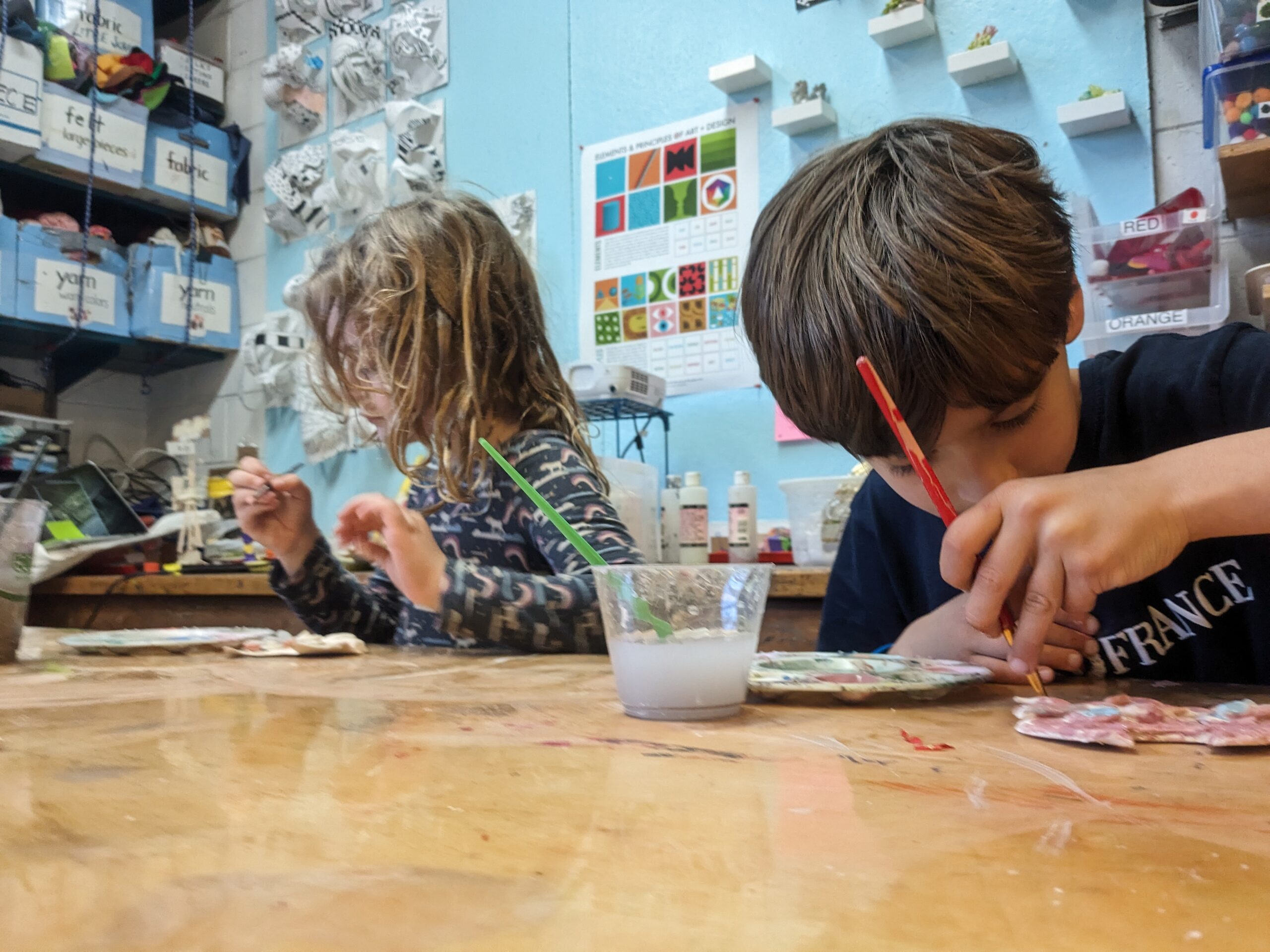
Lower Middle Group students understand that Art involves trying new abilities, new thoughts, being surprised and using feelings to express and learn about themselves practicing their skills of observation, imagination and using their senses. Classes start with one word on a board, which synthesizes the activity for the day. Through many projects and techniques this group explores color, line, and shape using tempera, water color, oil pastel, scissors, wire, beads, yarn, pipe cleaners, needles. and thread. They also manipulate 2-D materials to create a 3-D effect (paper-folding, tin foil, wire, collage, weaving, pillows, etc.)
Lower Middle Groupers are introduced to several artists focusing on lines, color, shapes and feelings.
Every two months Lower Middle Groupers are given the extra challenge of using pre-chosen materials to explore their possible connections and create something new and unique. This is an opportunity to both practice skills learned before and to go beyond.
